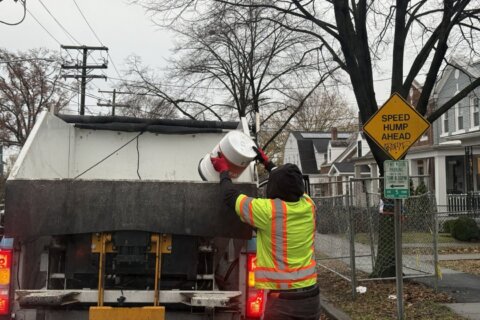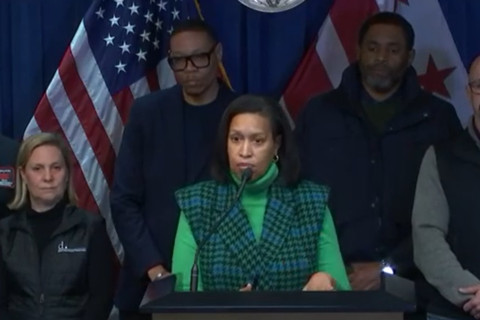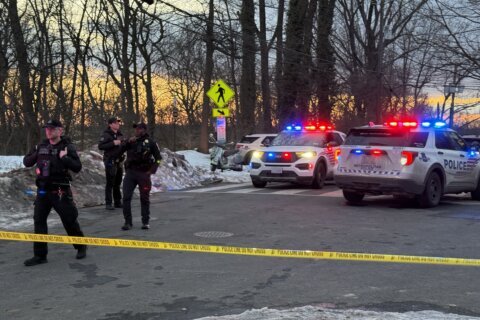
A 1-year-old program in D.C. with the goal of helping residents dispose of food scraps has drummed up so much buzz that there’s already a waiting list with thousands of people hoping to participate.
Currently, trucks in D.C.’s composting program serve about 9,000 households.
The Compost D.C. Food Waste Collection turns tossed coffee grounds, pizza crusts and leftover lettuce into nutrient-rich soil.
Tuesday morning, a large Ford pickup truck snaked through alleys and side streets in D.C.’s Brookland Neighborhood, making its weekly stop to collect the food waste from special, screw-top, 5-gallon buckets filled with food scraps.
What can go into the bucket?
“Anything that’s on your plate, so scrape off your plate. We have fruits, veggies and bone, meat and dairy,” said Rachel Manning, project lead with D.C.’s voluntary food waste collection program.
It started in August 2023, and since then it’s collected about 2.6 million pounds of food scraps, according to Manning.
Around 9,000 households across all eight wards are signed up to participate, with thousands more on the waitlist.
The program was approved for another year of funding. But it will not be adding more capacity for food collection this coming year.
Every week participants put the 5-gallon bucket with a black screw top outside their home for pickup. Once the food scraps are in the truck, they are taken to a composting facility in Prince George’s County, Maryland.
There the food scraps are mixed with what is called “brown waste,” such as leaves and mulch. There’s a heat component and then microbes break down the food scraps, creating rich topsoil that could be mixed with soil you find in a garden center. It can be used to grow nutrient-rich fruit and vegetables.
“So it’s sort of a loop system,” Manning said.
John Johnson, with D.C.’s Office of Waste Diversion told WTOP, ”people are starting to really understand the value of protecting our environment.”
According to statistics from the Environmental Protection Agency, 14.4% of methane emissions in the U.S. come from landfills.
“That’s basically from the decomposition process,” Johnson said.
“People said, ‘What kind of impact can I have on climate change?’ And it’s through that simple action that we’re able to provide curbside pickup for you to be able to have some impact on that.”
Rashad Moore is a driver with the composting crew, who sees folks put out their composting bin every week.
“They’re very happy. They’re very excited for what we’re doing, and we’re doing a good service for the community and for the District of Columbia,” Moore said.
But as with any D.C. trash can, there might be some surprises in these buckets of food scraps.
“You might see, you know, rats getting in the bucket or something like that,” Moore said, wondering how they can possibly get into the sealed bucket with no hole.
They plan to expand the program in 2025, with dozens of extra composting bins that anyone will be able to access 24 hours a day, seven days a week.
Get breaking news and daily headlines delivered to your email inbox by signing up here.
© 2024 WTOP. All Rights Reserved. This website is not intended for users located within the European Economic Area.









